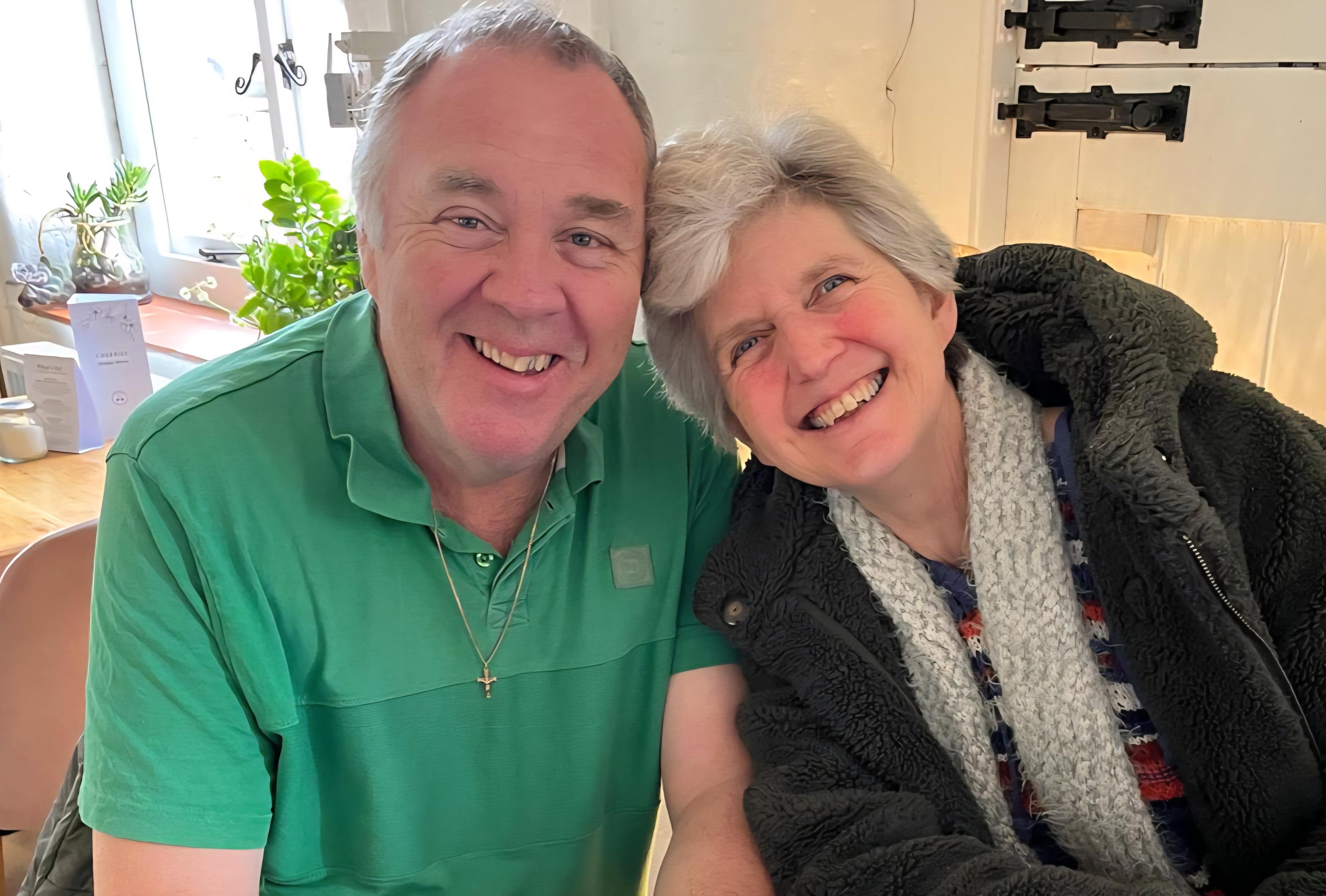Fostering a child with special educational needs or disabilities

Sue Lochrie, from Weymouth, is a foster carer who specialises in caring for children with special educational needs and disabilities (SEND).
Sue and her husband, Des, have fostered over 60 children before, during, and after raising their own family. They’ve cared for children in a variety of situations—from those needing a long-term home to short stays that allow the child’s parents and carers to have a break.
The couple have also responded to emergency calls, with just a few hours’ notice, always offering a safe and loving environment when it’s needed most.
“Could you give a child a break?”
That simple question in a shop window changed the course of Sue’s life. With a background in working with children with special educational needs, Sue and Des began their fostering journey in Wales in 1988, offering short breaks to families of children with disabilities. When they moved to Weymouth, their commitment deepened, evolving into full-time fostering.
A Family Built on Compassion
Sue and Des raised three birth children and adopted a fourth. Their home has always been open to children in need—especially those with complex needs. One young girl came for a week and stayed for nearly two years. Another, who arrived at 13, is now 23 and still lives with them.
Their children grew up surrounded by foster siblings, and the impact has been profound. One is now a social worker. One is launching a sports charity for children with additional needs, and another is training as a speech and language therapist. “It’s shaped who they are,” Sue says proudly.
Tailored Care, Lasting Impact
Fostering children with complex needs requires flexibility and patience. “You can’t be too house proud,” Sue laughs. “Every child is different. Some need hoists and ramps, others are climbing stair gates and trying to put things down the toilet. You never know what they’ll get their hands on. You must adapt your care to each child’s needs.”
Sue and Des adapted their home to accommodate children in wheelchairs, converting their garage into a wet room and accessible bedroom. But fostering isn’t about having the perfect house—it’s about being willing to adapt and care. Local authorities often support with home adaptations and equipment, and every foster carer receives an assigned social worker.
Support and Community
Sue highlights the importance of support networks. “The child we are currently caring for has had a brilliant social worker for seven years. The school has been amazing, providing communication aids and tailored learning.” She also praises local groups like Arts Plus and Remix, which offer inclusive activities for children with special educational needs or disabilities.
Short breaks, when a child stays with another nearby foster carer, have been vital too—not just for Sue and Des, but for the children who come to stay with them. “It’s their holiday too,” she says. “We make it fun. It’s not just about giving the foster carer a break, it’s often a really enjoyable time for the child or young person who’s staying with you.”
The Rewards and Realities
The challenges are real, and it was something Sue’s prior experience prepared her for— the level of personal care and behavioural needs are different for every child. But the rewards make it all worth it. Sue recalls the joy of seeing a non-verbal child use a communication aid for the first time. “She could finally tell us what she wanted. That was huge.”
Fostering has also meant holidays to Disneyland Paris, learning how to navigate airports with additional needs, and discovering the best accessible clubs and services. “We include the children we are caring for in our family holidays but also try to get away as a couple each year. It’s important to do both and have a rest when you need it,” Sue says.
Advice for Future Foster Carers
Sue’s advice is simple: be adaptable and patient. Don’t be afraid to ask for help and connect with other foster carers to learn more about their experiences. “Accept that every child is different—and that’s OK. You don’t need to have it all figured out,” she says. “Just be willing to care.”
A Lasting Legacy
When asked what her hopes were for the children in her care, Sue says, “you just want them to be happy, to feel cared for and loved, and to be safe.”
Now in their 60s, Sue and Des continue to offer short breaks and care for a long-term foster child and don’t look to be stopping any time soon. “We said we’d have her until she’s 18. That’s another eight years. We’re not done yet” Sue smiles.
Could you foster? Get in touch and learn more about fostering with Dorset Council
Dorset Council needs more foster carers, especially for teenagers, sibling groups and children with special educational needs and disabilities.
Fostering can be incredibly rewarding, and we welcome applications from people from all walks of life. The important thing is that you want to make a difference to a child or young person.
Dorset Council is a part of Fostering South West, a partnership of local councils across the Southwest, working together to find safe, loving homes for children in care. By fostering through your local council, you support your community and benefit from expert training and tailored local support.
Learn more and start your fostering journey today. Get in touch or visit fosterwithdorsetcouncil.com to find out more about the support and training available to foster carers. You can read more Dorset Council foster carer stories here.
Categories: Children's Services Fostering stories

Comments
0 Comments